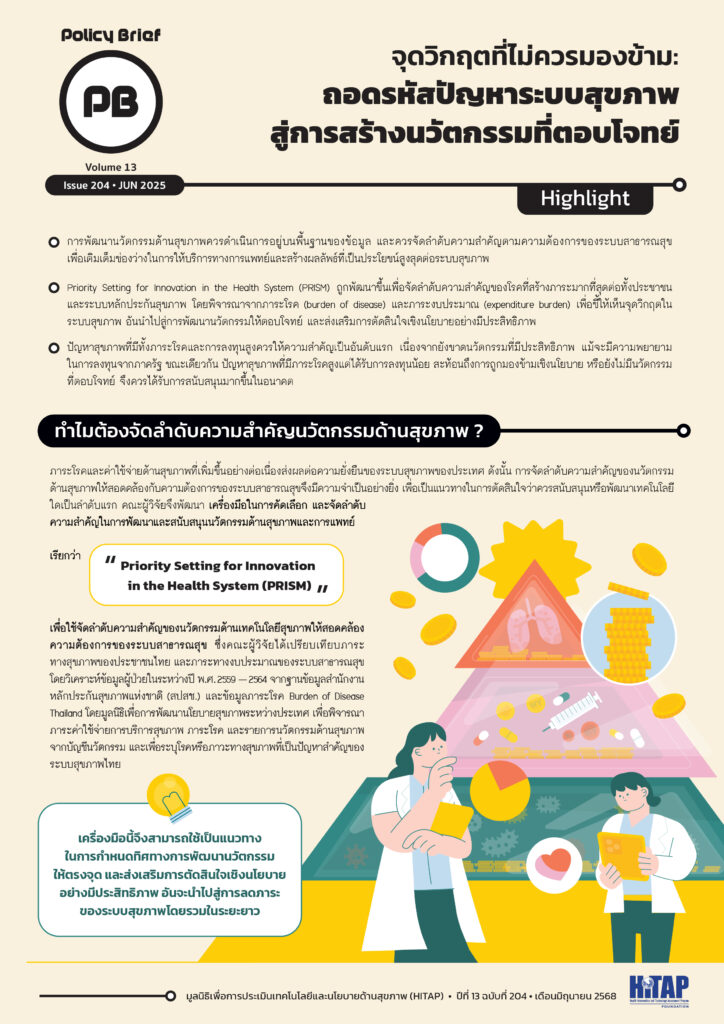

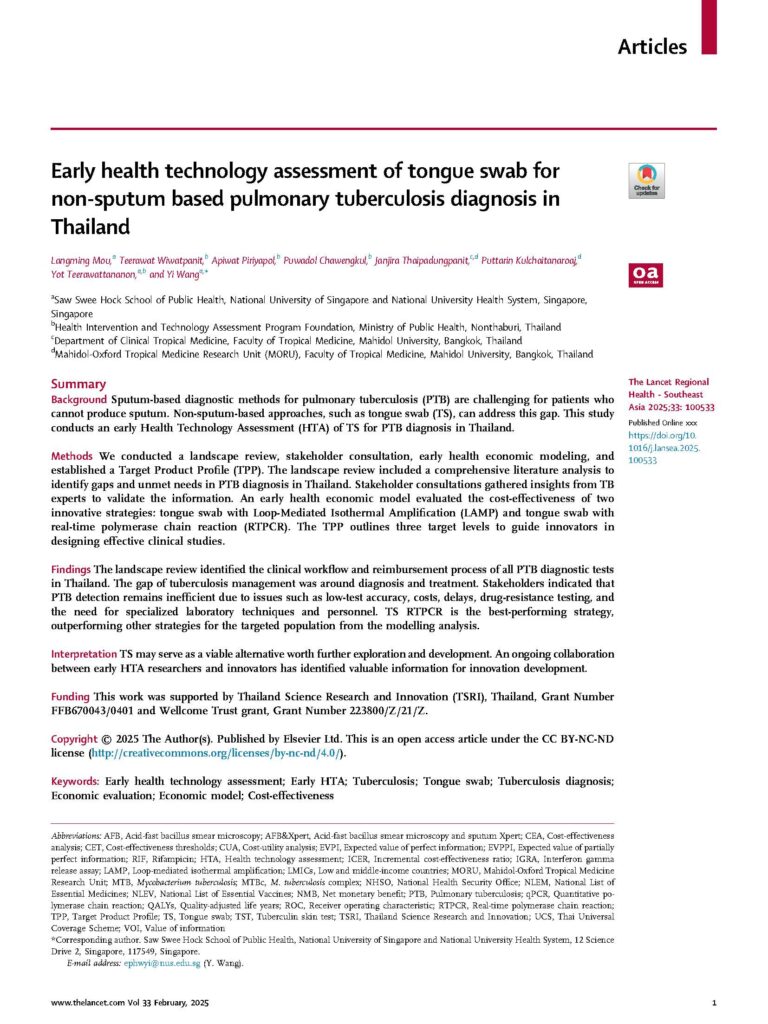
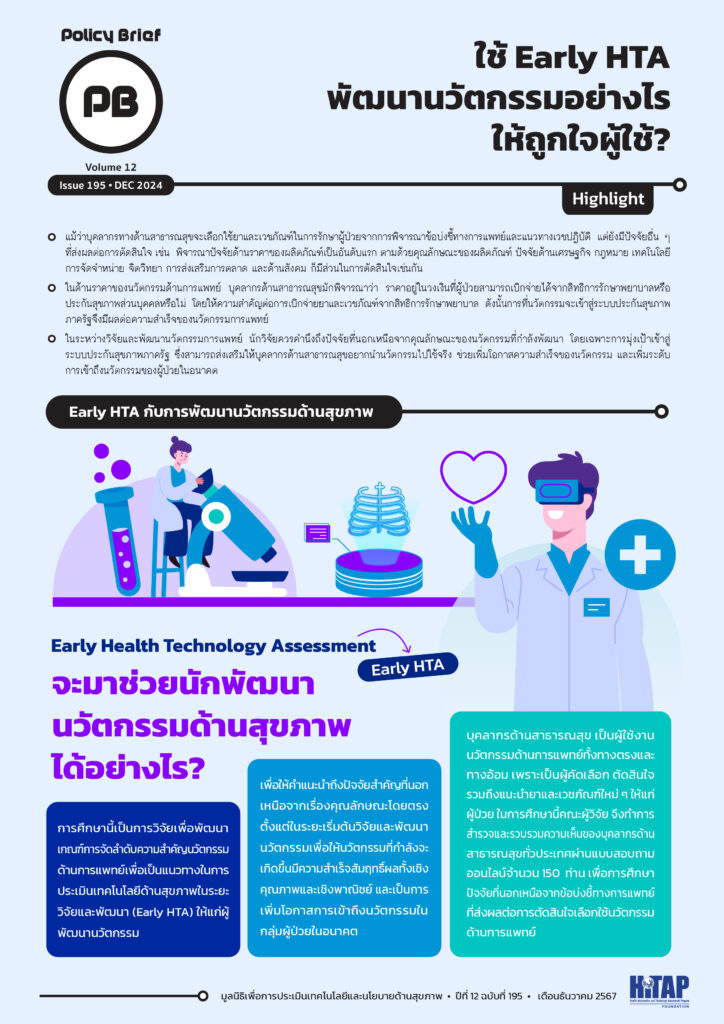
Policy Brief ฉบับที่ 195: ใช้ Early HTA พัฒนานวัตกรรมอย่างไรให้ถูกใจผู้ใช้?
ข้อเสนอเชิงนโยบาย ดาวน์โห
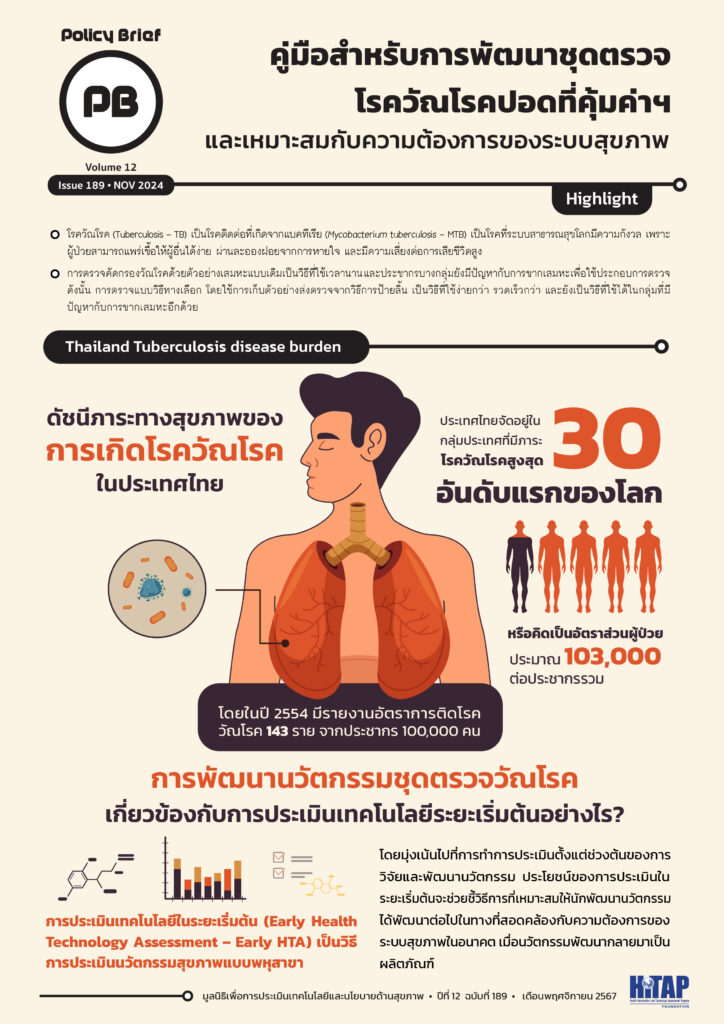
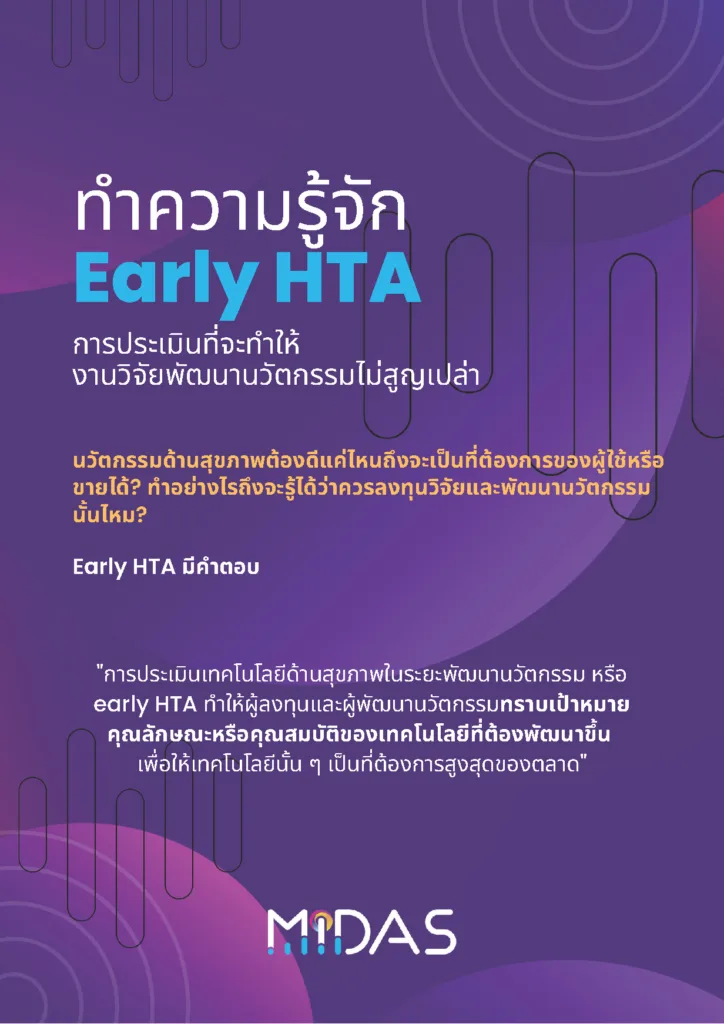
Factsheet: ทำความรู้จัก Early HTA การประเมินที่จะทำให้งานวิจัยพัฒนานวัตกรรมไม่สูญเปล่า
โดย HITAP
ชวนทำความรู้จัก Early HTA การประเมินที่จะทำให้งานวิจัยพัฒนานวัตกรรมไม่สูญเปล่า นวัตกรรมด้านสุขภาพต้องดีแค่ไหนถึงจะเป็นที่ต้องการของผู้ใช้หรือขายได้? ทำอย่างไรถึงจะรู้ได้ว่าควรลงทุนวิจัยและพัฒนานวัตกรรม นั้นไหม? Early HTA มีคำตอบ!
การประเมินเทคโนโลยีด้านสุขภาพในระยะพัฒนานวัตกรรม หรือ early HTA ทำให้ผู้ลงทุนและผู้พัฒนานวัตกรรมทราบเป้าหมาย คุณลักษณะหรือคุณสมบัติของเทคโนโลยีที่ต้องพัฒนาขึ้น เพื่อให้เทคโนโลยีนั้น ๆ เป็นที่ต้องการสูงสุดของตลาด
การประเมินเทคโนโลยีด้านสุขภาพในระยะพัฒนานวัตกรรม หรือ early HTA ทำให้ผู้ลงทุนและผู้พัฒนานวัตกรรมทราบเป้าหมาย คุณลักษณะหรือคุณสมบัติของเทคโนโลยีที่ต้องพัฒนาขึ้น เพื่อให้เทคโนโลยีนั้น ๆ เป็นที่ต้องการสูงสุดของตลาด

Navigating the Landscape of Digital Health: United Kingdom
โดย HITAP
Digital health technologies (DHTs) represent various products used in the healthcare system, including software, applications (apps) and online platforms benefiting individuals and the wider health and social care system. It is a field characterised by complexity and dynamism.
The English digital health ecosystem centres around patients as the ultimate beneficiaries but comprises a vibrant network of stakeholders from all the private, public and third sectors (e.g., non-profits), engaging with each other at various steps along the technology lifecycle.
The English digital health ecosystem centres around patients as the ultimate beneficiaries but comprises a vibrant network of stakeholders from all the private, public and third sectors (e.g., non-profits), engaging with each other at various steps along the technology lifecycle.


A Cost Analysis of Key Population Interventions to Fast Track the End of the HIV Epidemic in Thailand
โดย HITAP
This report includes an in-depth discussion of factors and variables that affect unit costs, including labor (the most prominent), fixed costs, and potential contribution to epidemic control (e.g. achievement of targets). Key factors impacting input costs include staffing number and type, and capital costs, output costs vary based on factors including number and type of activities, innovations, and capacity to achieve targets. However, assessment of technical efficiency by model and site posed challenges. Assessed sites provide different activities along the services cascade depending on KP group, geographical location, and other contextual factors. This variation also makes it difficult to determine specific drivers of unit costs. In addition, differenced in number and type of program inputs and outputs for activities result in variations in unit costs.
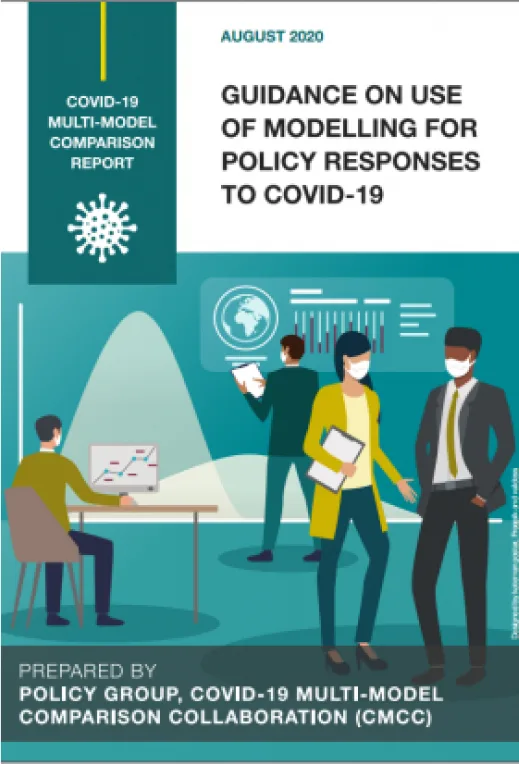
Guidance on use of modelling for policy responses to COVID-19
โดย HITAP
As COVID-19 spreads worldwide, national (and sub-national) governments and development partners are making use of a rapidly growing body of evidence to develop policies mitigating against this devastating pandemic. Mathematical models and computational simulation models play a unique role to inform resource planning and policy development (among other uses) through scenario analysis and short-term forecasting. Already in the first six months of this outbreak, we have seen many models at the sub-national, national, regional and global level being developed at an impressive speed.
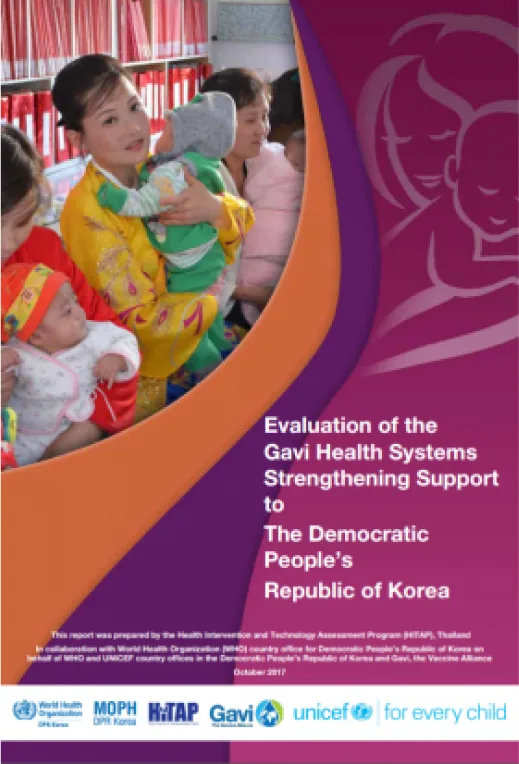
Evaluation of the Gavi Health Systems Strengthening Support to the Democratic People’s Republic of Korea
By HITAP
This report summarises the study which aimed to: assess the extent to which Gavi HSS support provided to DPR Korea during this period achieved, or is on track to achieve, its objectives; determine to what extent it has contributed to strengthening the health system of the country; identify issues encountered during implementation that have affected the overall results; and share the lessons learnt for informed decision-making with regard to future support from Gavi and other international donors to the DPR Korea. This study was supported by the World Health Organization (WHO) DPR Korea.
